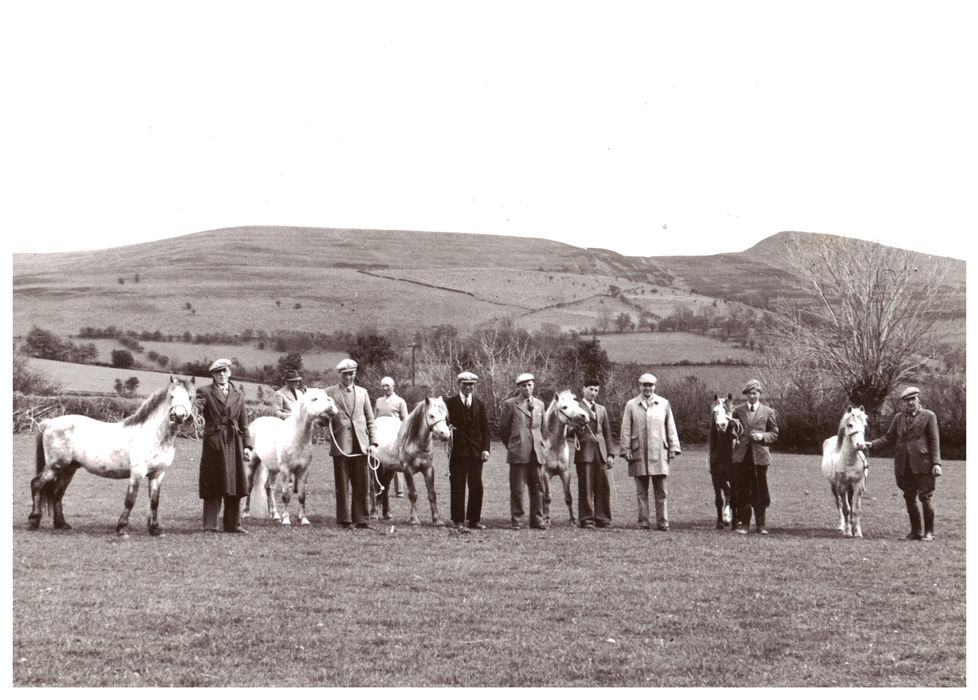Welsh Mountain 'Hill' Pony
THE WELSH MOUNTAIN PONY
Not exceeding 121.9 cm (12.0 hands)
Section A of the Stud Book
General Character
Hardy, spirited and pony-like
Colour
Any colour, except piebald and skewbald
Head
Small, clean-cut, well set on and tapering to the muzzle
Eyes
Bold
Ears
Well placed, small and pointed, well up on the head, proportionately close
Nostrils
Prominent and open
Jaws and Throat
Clean and finely-cut, with ample room at the angle of the jaw
Neck
Lengthy, well carried and moderately lean in the case of mares, but inclined to be cresty in the case of mature stallions
Shoulders
Long and sloping well back. Withers moderately fine, but not "knifey". The humerus upright so that the foreleg is not set in under the body.
Forelegs
Set square and true, and not tied in at the elbows. Long, strong forearm, well developed knee, short flat bone below knee, pasterns of proportionate slope and length, feet well-shaped and round, hoofs dense.
Back and Loins
Muscular, strong and well coupled
Girth
Deep
Ribs
Well sprung
Hind Quarters
Lengthy and fine. Not ragged or goose-rumped. Tail well set on and carried gaily.
Hind Legs
Hocks to be large, flat, and clean with points prominent, to turn neither inwards nor outwards. The hind legs not to be too bent. The hock not to be set behind a line from the point of the quarter to the fetlock joint. Pasterns of proportionate slope and length. Feet well-shaped, hoofs dense.
Action
Quick, free and straight from the shoulder and hocks well flexed with straight and powerful leverage and well under the body.
The Welsh Mountain 'Hill' Pony is a term used to describe the sometimes feral or semi-feral herds of ponies that are still kept on the hills and commons in Wales and the Border Counties in a traditional way. Owners have grazing rights on the hills or commons, and the ponies have the freedom to roam across the common land. These are managed by the Welsh Mountain Pony Hill Improvement Societies, which were set up by the breeders and commoners as a link between the Society and the owners. Since the foundation of the Society, there has been a 'Premium' scheme, where stallions owned by commoners under the jurisdiction of their Improvement Society would enter their stallion for inspection by a panel of expert judges, and if successful, the stallion would be awarded a 'premium,' a payment which would go towards the continued breeding of the ponies on the hill or common. This scheme is still runs today, taking place at the Glanusk Stallion Show and now sees some dozen stallions competing from Hill Improvement Societies from across Wales












